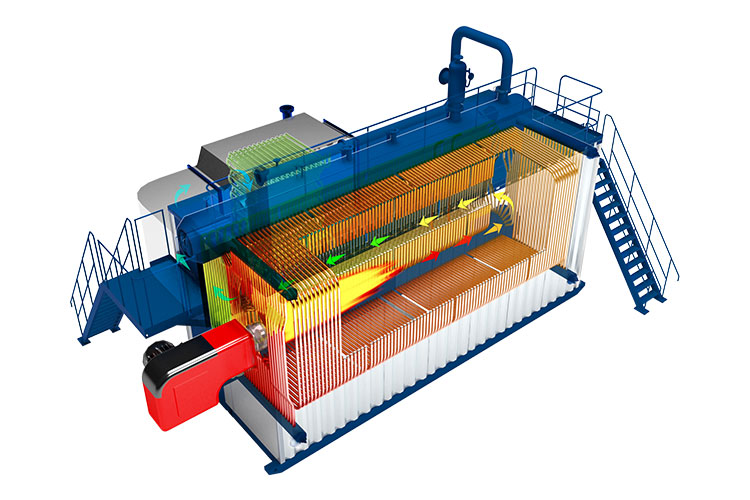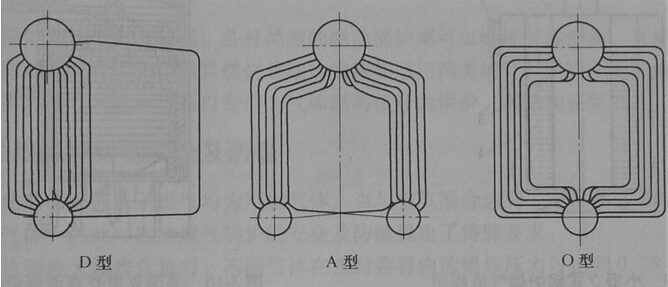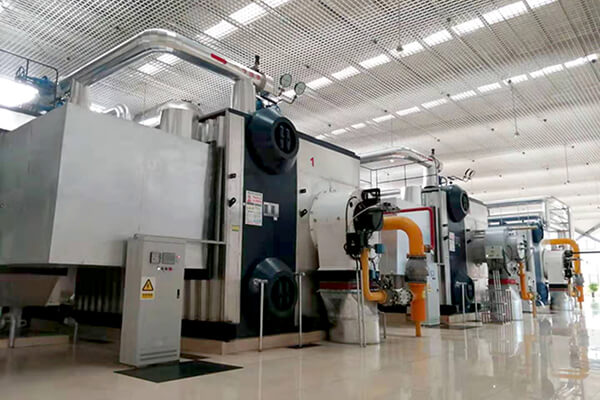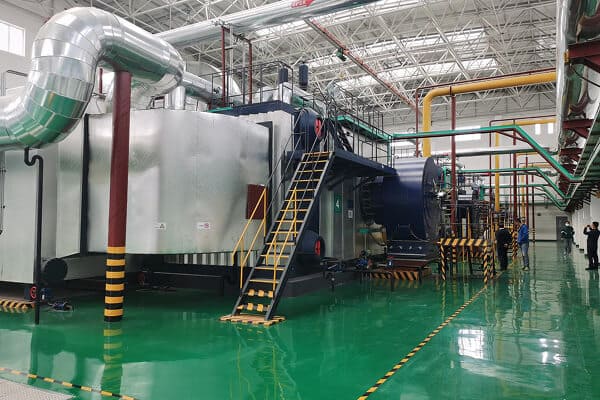A water-tube boiler is a type of steam or hot-water boiler in which water circulates inside small-diameter tubes while hot combustion gases flow around those tubes. Because the water is contained in many small tubes rather than in a single large shell, water-tube designs tolerate much higher pressures and temperatures, and they are the standard choice for high-capacity and high-pressure steam generation (power plants, large industrial plants).
How Does a Water-Tube Boiler Work?
Basic operation: fuel is burned in a furnace to produce hot flue gases; those gases pass over banks of tubes that contain water. Heat transfers through the tube walls into the water, producing steam (or raising the temperature of hot water). Generated steam is separated in a steam drum (or collected at the top) and delivered to the process or turbine. Circulation can be natural (density-driven) or forced (pumps/forced circulation) depending on design and duty. Superheaters, economizers, and air heaters are commonly added to improve performance and recovery of waste heat.
What Fuels Can a Water-Tube Boiler Use?
Water-tube boilers are fuel-flexible. Typical fuels include:
- Natural gas and other gaseous fuels (city gas, biogas)
- Light and heavy fuel oils
- Coal (in large utility boilers) and biomass in specially designed furnaces
- Waste gases or process off-gases in industrial applications
- Some modern specialized systems can be adapted for hydrogen or hydrogen blends (with appropriate burner and materials changes).
Packaged and industrial water-tube boilers are routinely specified for both liquid and gaseous fuels; fuel choice affects burner design, emissions controls, and fuel-handling systems.
Advantages and Disadvantages of Water-Tube Boilers
Advantages
- High pressure and high temperature capability — suitable for large power and process duties.
- Faster steam raise and better heat-transfer per unit volume (compact heating surface), so smaller footprint for a given output than many shell boilers.
- Safer at very high pressures: small tube diameter reduces hoop stress compared with large shells.
- Easier to repair/replace tubes individually in many designs; modular package boilers simplify installation and maintenance.
Disadvantages
- More complex design and higher initial capital cost than simple fire-tube boilers for small duties.
- Requires stricter water-treatment and maintenance (scale and corrosion on tubes quickly reduce performance and can cause tube failure). Proper feedwater conditioning is critical.Burner, control and auxiliary systems tend to be more sophisticated and require skilled operation.
How Efficient Are Water-Tube Boilers?
Modern water-tube boilers — especially when combined with economizers, condensate recovery and optimized burners — commonly achieve fuel-to-steam efficiencies in the mid-80s up to low-to-mid-90s percent under favorable conditions. Packaged industrial water-tube designs can quote net efficiencies in the high-80s to low-90s; absolute efficiency depends on fuel, operating load, heat-recovery equipment, and how well stack and radiation losses are controlled. Operational practices (blowdown, sootblowing, deaeration, feedwater heating) also strongly influence real-world efficiency.
How Long Do Water-Tube Boilers Last?
Expected service life for an industrial water-tube boiler typically ranges from 15 to 30 years, depending on design quality, operating stresses (pressure, temperature cycles), water chemistry, maintenance programs, and whether major overhauls (retubing, parts replacement) occur. With diligent operation and periodic major maintenance, many industrial boilers can be kept in service toward the upper end of that range.
What Are Water-Tube Boilers Used For?
Common applications include:
- Large and utility power stations (electricity generation).
- Industrial steam for chemical, petrochemical, paper, food & beverage, textile, and pharmaceutical plants.
- Marine and shipboard propulsion systems (specialized designs).
- District heating and combined heat & power (CHP) plants.
Conclusion
Water-tube boilers are the workhorses for high-pressure, high-capacity steam and hot-water applications. They offer excellent thermal performance, compactness for large outputs, and adaptability to many fuels — but they demand good feedwater treatment, skilled operation and a stronger maintenance discipline than simpler boiler types. For industrial or utility users who need high steam rates or high pressures, a water-tube solution is usually the most appropriate choice.
Have a question about boilers? Reach out via WhatsApp at [+86 18269957295] or through our website — we’re happy to help.
FAQ
Q: Are water-tube boilers safer than fire-tube boilers?
A: At very high pressures water-tube designs are inherently safer because small tube diameters reduce hoop stress; however, safety depends on correct design, controls, and maintenance for either boiler type.
Q: Can I run a water-tube boiler on biomass or waste fuels?
A: Yes — but combustion system, ash handling and materials must be matched to the fuel. Biomass and solid fuels require specialized furnace and particulate / slag management systems.
Q: How often should a water-tube boiler be serviced?
A: Routine daily/weekly checks plus scheduled annual inspections are typical; critical items include water chemistry, blowdown control, burner tune, and tube inspections. Major overhauls (retubing) are scheduled based on condition and hours of service.
Q: Is a water-tube boiler a good choice for small commercial heating?
A: For small commercial heating loads a fire-tube or packaged hot-water boiler is often more economical; water-tube boilers become cost-effective as required steam pressure, temperature or capacity increases.
Get your best price
Quickly compare 3 FREE quotes
- Engineer quick quote
- The overall delivery speed is fast
- Financial choice
- Low installation costs and cost savings
25 years+ of boiler R&D
More than 20 innovative technologies




